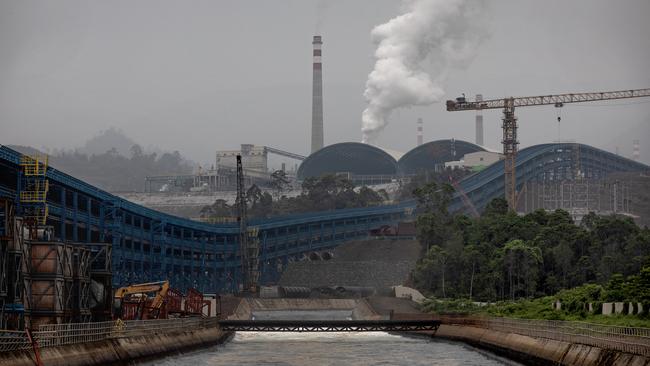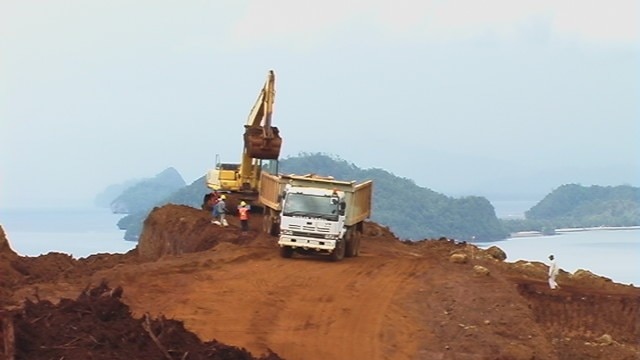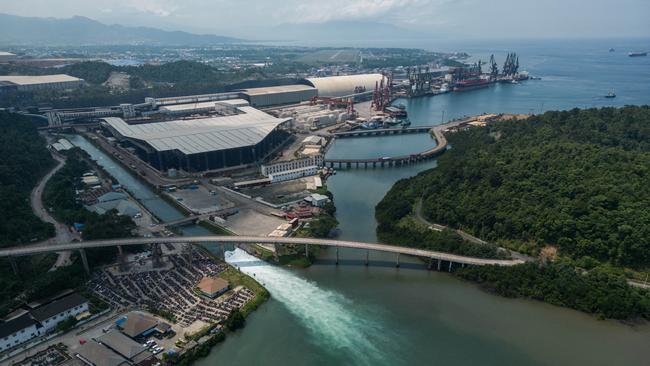Indonesians seek closer ties and co-operation on nickel
Indonesia says its global-dominating nickel industry is not the ‘enemy’ of Australia, but an opportunity for the two countries to build a global EV battery hub.

Indonesia’s market-dominating nickel industry is not the “enemy” of Australia, the country’s Deputy Foreign Minister Pahala Mansury has insisted ahead of a trip to Sydney this week to push for closer ties on critical minerals and electric vehicle battery production.
Indonesia’s mostly Chinese-funded nickel and nickel processing sector is widely blamed for flooding the global market and forcing the mothballing of Australian nickel operations, including Wyloo Metals’ Kambalda mines and BHP’s Kwinana nickel refinery and Kalgoorlie smelter. But Mr Mansury has urged Australia to focus on the opportunities Indonesia’s expanded nickel sector presents for the two commodity-rich neighbours to collaboratively build a global EV battery hub that can help diversify their markets beyond China.
Indonesia would welcome more Australian players in its domestic nickel and nickel processing industry – a key mineral in EV battery production, along with lithium, manganese and cobalt – just as Indonesian miners and processors were also now looking to Australia as part of a diversification strategy, Mr Mansury told The Australian. But he warned: “The narrative needs to change. Indonesian nickel is not necessarily the enemy of nickel coming from Australia.

“Australia needs to look at Indonesian nickel in a more positive way because there are areas that we can collaborate together, including critical minerals processing, as (Australian company) Nickel Industries are doing in Indonesia.”
By 2030, the global EV battery industry would need as much as six times the volume of critical materials currently used in the production chain, Mr Mansury said.
“The Indonesian market is a diversification opportunity for Australia, given that at present much of what is being produced by these mining companies is being exported to a particular country to our north. So this is an opportunity for Australia to diversify. Indonesia wants to diversify also.
“There are a lot of opportunities for us to grow together. We hope we will be looked at as a friend, as a friendly party, as somebody who wants to work with Australians on this.”
Indonesia has transformed itself into a key player in the global nickel value chain in recent years on the back of a government ban on raw nickel exports aimed at encouraging a processing industry to support its EV ambitions.
The policy was hugely successful, attracting a Chinese investment flood that has driven an explosion in Indonesia’s nickel processing capacity.
But that rapid expansion is blamed for a global oversupply that has crashed prices and come at a cost to the Indonesian environment and the livelihoods of farmers and fishermen.
Australian nickel players say they cannot compete with a product from a country with cheap labour and low environmental and safety standards, and that the cost of producing nickel to higher environmental protection and workplace standards should be factored into a “clean” nickel price.
The federal government lobbied unsuccessfully earlier this year for the London Metal Exchange to distinguish between sustainable and dirty nickel.
That raised hackles in Jakarta which says more responsible Indonesian nickel players, such as Brazil’s Vale and Australia’s Nickel Industries, are helping to lift industry standards.

Mr Mansury said the scope for co-operation between Australia and Indonesia on critical minerals processing and EV battery production far outweighed any concerns over competition, including opportunities for Australian miners to process their minerals at lower cost in Indonesia.
“Australia has some rich critical mineral resources that Indonesia wants – like lithium and cobalt – in order to become one of the world’s batteries and battery material producing hubs,” he said.
“There is an opportunity for Indonesia and Australia to build a much stronger supply chain for batteries and for critical minerals processing.”
“At the end of the day we should find a way for how to establish the most efficient global supply chain that is complementary to each other.”
The two governments signed a memorandum of understanding last November to look at ways to harmonise EV supply chains and foster business-to-business links but now needed follow-through from business and state-owned enterprises, he added.
Mr Mansury is in Sydney this week for a series of meetings on critical minerals co-operation, but also to open Indonesia’s first bank in Australia in his other role as vice-president of the state-owned BNI (Bank Negara Indonesia).
The new Sydney branch aims to service Australia’s growing Indonesian diaspora, including a large student community and rising numbers of Indonesian miners and mining services contractors.
He told The Australian the BNI move reflected new momentum in bilateral trade and investment ties after years of government effort, which culminated in the 2020 ratification of the IA-CEPA (Indonesia Australia Comprehensive Economic Partnership Agreement) and a new 2040 regional investment strategy last year.
Two-way trade had already risen 50 per cent between 2019 to 2023 to around $24bn, but both sides were eager to do more, he said.
“We think this is the right time. The bank follows the people. The bank follows the trade.”



To join the conversation, please log in. Don't have an account? Register
Join the conversation, you are commenting as Logout